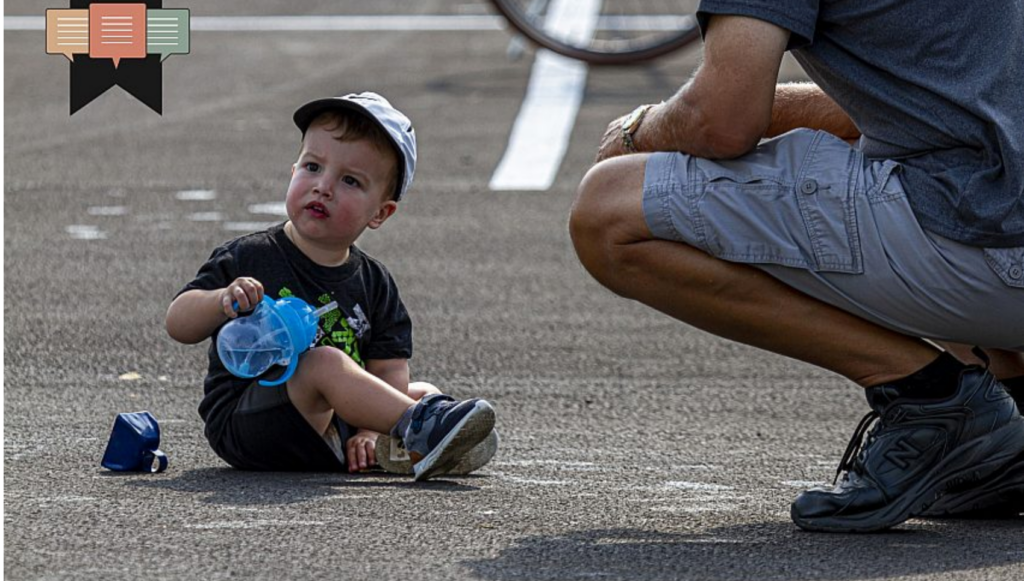Will we pass it on to future generations?

I was born in the middle. I came into this world in 1977 as a middle child (two out of four, anyway) in Middle America in a middle-class family. The ordinary life I’ve lived has been the experience of tens of millions of people in this country and hundreds of millions more around the world. To be sure, I’ve benefited from several advantages that many people don’t get: a loving family, good schools, and a safe neighborhood. Since becoming an adult, I’ve realized that my “normal” was not normal for all sorts of people. And yet, there is a “normal” that almost all of us in the West have experienced over the past 40 years, or if not quite 40 years, at least since the end of the Cold War.
Even with all the turmoil of contested elections, a global pandemic, and patterns of economic upheaval, virtually everyone reading this column gets up in the morning assuming a host of givens. Even the poorest Americans by and large enjoy material comforts—cars, air conditioning, cell phones, big-screen TVs—that would have been luxuries (or unheard of) not that long ago. We can go to the grocery store and get food. We can own property and have it secured against the encroachment of others. We can appeal to an imperfect but functioning legal system for justice. We can gather for worship freely and try to persuade others of our faith. We don’t worry about warring clans burning down our village. We don’t lose sleep wondering if Viking raiders will pillage our town. And we don’t worry about world war.
Or at least we didn’t.
The great privilege of growing up in relative peace and prosperity—whether narrowly in a healthy family or more broadly in a nation guided by the rule of law and rooted in God-given rights—is that the world seems more or less safe and it kind of makes sense. Let us give thanks for this experience wherever it exists. The danger, however, is that we begin to think it always has existed and always will exist. When our Founding Fathers spoke of securing “the blessings of liberty to ourselves and our posterity” they used the word “blessings” for a reason. They knew that liberty was not the normal condition of human society. They understood that freedom was a divine gift and a fragile accomplishment. The thing about civilizations is that persons and peoples aren’t always civilized.
While I do not wish to add my voice to the alarmists who think the West is certain to collapse under a weight of bureaucratic bloat and cultural decadence, I do believe that most of us have lost sight of the blessings we uniquely enjoy.
Vladimir Putin is a wicked tyrant hellbent on a wicked path of maniacal self-aggrandizement and imperial usurpations. Thankfully, the world is not full of Putins. But the world is full of danger and the potential for disintegration. While I do not wish to add my voice to the alarmists who think the West is certain to collapse under a weight of bureaucratic bloat and cultural decadence, I do believe that most of us have lost sight of the blessings we uniquely enjoy. Even a cursory look at the sweep of human history reminds us that the default condition of human society—not for all, but for most—has been poverty, not plenty, violence, not peace, bondage, not freedom. Rousseau got it exactly backward. Civilization is not the curse that twists the noble human heart. The fallen human heart is what makes the accomplishment of civilization so necessary and so precarious.
Generally speaking, there are two ways one can think about the purpose of government, and these two ways have everything to do with our moral philosophy and our anthropology. These two ways can be framed by two very different questions. Question No. 1 asks, “What is the best we could accomplish together and how do we pursue this?” Question No. 2 asks, “What is the worst that could happen and how do we avoid this?” Our Founding Fathers were animated by the second question. The American experiment is not so much about pursuing some grand objective through government as it is about protecting something precious and threatened. God gives rights. Government protects those rights. That’s the fragile logic of freedom. As Benjamin Franklin famously quipped when asked what sort of government the constitutional delegates had created, “A republic, if you can keep it.”
The prosperity and freedoms we take for granted had to be won in days past, which means they can be lost in the days ahead. If you look at the world gross domestic product per capita over the past two millennia, you’ll see that economic well-being was virtually unchanged for 1,800 years, at which point it shoots up like a hockey stick. Jonah Goldberg calls it “the Miracle.” Others refer to our experience as WEIRD (Western, educated, industrialized, rich, and democratic). Whatever you call it, the life most of us enjoy today is not normal—not normal in history and not normal for millions of people around the world. The more we recognize its abnormality (and our blessing), the better equipped we are to preserve this civilizational inheritance for ourselves and pass it on to our posterity. If we fail at this task, future generations will never know these blessings.



